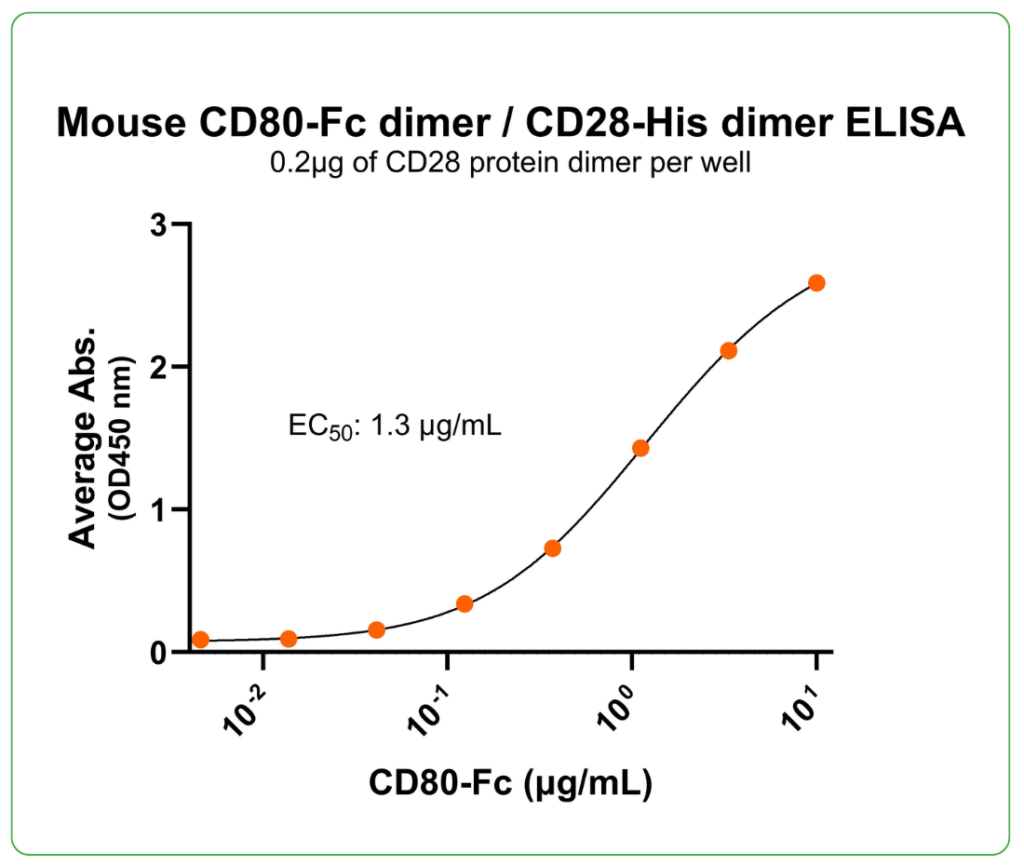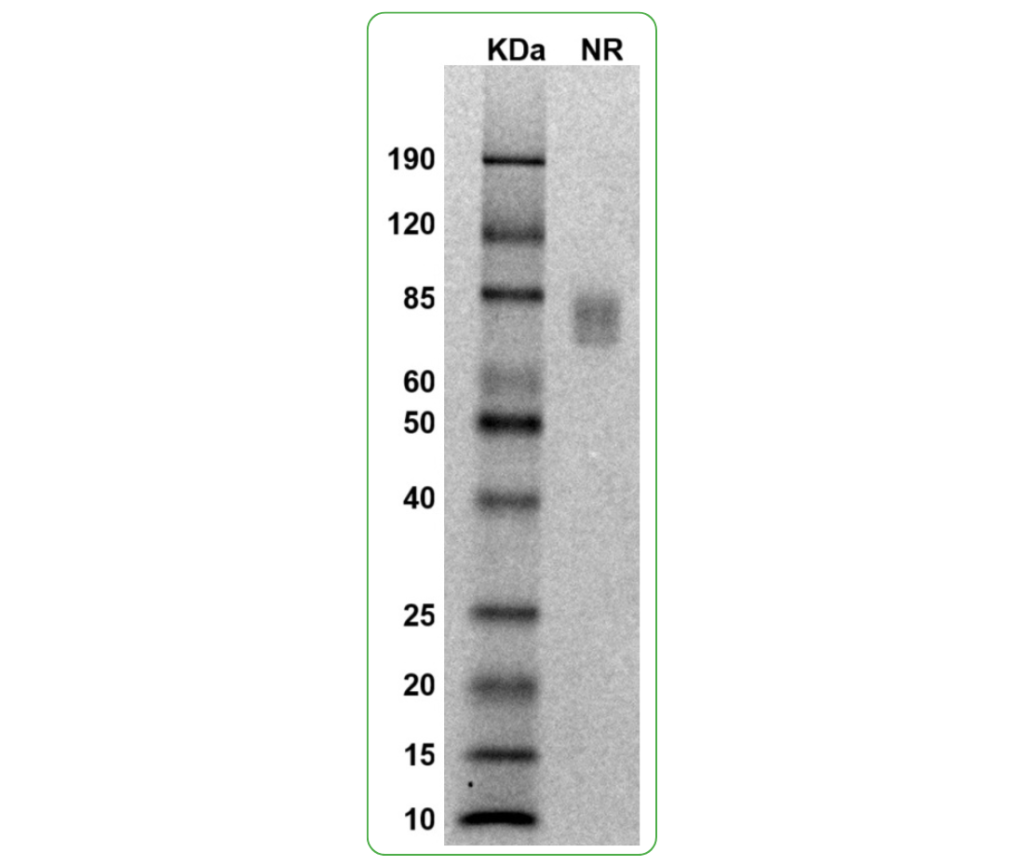Bioactive, Recombinant Mouse CD28 Protein Dimer, His Tag
| Product Code | CSP-25186-01 |
| Expression Host | HEK293T |
| Verified Applications | SPR and ELISA for CD28 and CD80 ligand protein binding assays. |
| Suggested Applications | BLI for CD28-specific antibody and CD80 protein binding assays. Animal immunization, RUO. |
| Purity | Greater than 90% dimer form as determined by SDS-PAGE under non-reducing condition |
| Amino Acid Range | N20-L150 |
For Research Use Only (RUO)
Price: $125.00
Price: $195.00
Price: $350.00
Price: $750.00
Price: $2,500.00
Bioactivity – Ligand Binding
Immobilized mouse CD28 protein dimer, His Tag (CSP-25186-01 at 2 μg/mL (100 μL/well) can bind mouse CD80 protein dimer, Fc Tag (Cat. No. CSP-25187-04), with half maximal effective concentration (EC50) range of 0.6-2.6 μg/mL (QC tested).
SDS-PAGE
Specifications
Formulation: 0.22μm filtered PBS, pH 7.4
Shipping: Frozen Dry Ice
Storage: -80°C
Mouse Cluster of Differentiation 28 (CD28) is a Type I membrane protein in the immunoglobulin superfamily and a member of the B7 Family of ligands. It exists as a homodimer on the cell surface forming a stable structure composed of two identical CD28 protein subunits. The recombinant mouse CD28 protein dimer is a cis-homodimer (cis-dimer) protein (CSP-25186-01) and contains a CD28 extracellular domain (UniProt# P31041, amino acids Asn20-Leu150) fused with a proprietary cis-dimer motif followed by a His tag at the C-terminus. This dimeric protein is expressed in HEK293T cells. The CD28 protein dimer is bioactive and can enhance the binding to CD80. It also binds CD28-specific antibodies. This mouse CD28 protein dimer can be used as an antigen for in vitro assays and antibody screening, and as an immunogen for immunization to generate antibodies targeting more conformational epitopes.
Protein Name: CD28
UniProt #: P31041
Predicted Molecular Weight: 46 kDa
SDS PAGE Molecular Weight: The migration range of the CD28 protein dimer with glycosylation under non-reducing condition is 60-85 kDa on SDS PAGE.
Protein Construct: Mouse CD28 protein dimer contains a CD28 extracellular domain (Uniprot# P31041) fused with a proprietary cis-dimer motif followed by a His tag at the C-terminus.
Background
Cluster of Differentiation 28 (CD28) is a Type I membrane protein in the immunoglobulin superfamily and a member of the B7 Family of ligands. CD28 is also known as Tp44, TP-44, T-cell-specific surface glycoprotein CD28, and CD28 Antigen. CD28 is the only B7 receptor consistently expressed on naive T cells. CD28 contains a single immunoglobulin variable-region-like (IgV-like) domain, a transmembrane domain, and a cytoplasmic domain. It exists as a homodimer on the cell surface forming a stable structure composed of two identical CD28 protein subunits. The intracellular domain contains two proline-rich motifs and a YMNM motif that are critical for effective signaling. As an immune checkpoint CD28 binds both CD80 (Cluster of differentiation 80) and CD86 (Cluster of differentiation 86) to transmit a stimulatory signal with T cells, competing with CTLA-4 (Cytotoxic T-lymphocyte associated protein 4) which transmits an inhibitory signal. CD28, as a key co-stimulatory receptor in T cell activation, is associated with several human diseases, particularly those related to immune system dysfunction, including autoimmune diseases, cancers, and allergic and inflammatory disorders. CD28 is associated with autoimmune diseases including type 1 diabetes, lupus nephritis, asthma, and Crohn’s disease. The importance of CD28 signals in T-cell function makes this molecule an exciting target for drug discoveries to modulate the function of both effector T cells and Treg cells. While structurally and functionally similar to human CD28, mouse CD28 is a species-specific tool essential for preclinical studies, basic research and translational research in cancer immunotherapy.
Alternate Names: Tp44, TP-44, T-cell-specific surface glycoprotein CD28, CD28 Antigen


